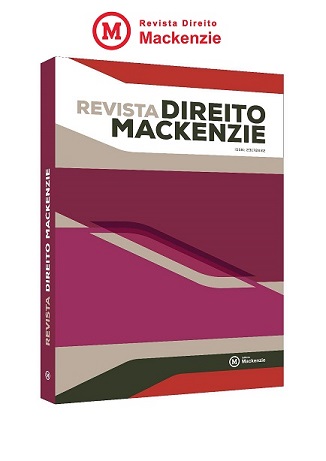ENVIRONMENTAL REFUGEES IN THE CONTEXT OF GLOBAL WARMING: AN ANALYSIS OF THE IOANE TEITIOTA CASE AND THE INTERNATIONAL PROTECTION OF HUMAN RIGHTS
DOI:
https://doi.org/10.5935/2317-2622/direitomackenzie.v15n114553Abstract
The objective of this work is to analyze the international protection of
environmental refugees: a category of migrants named because of their move
because of the risk and vulnerability situations in which they found themselves
in their place of origin, motivated by climate change. Particular attention is due
to the case of Ioane Teitiota, an inhabitant of Kiribati who denied environmental
refugee status by the New Zealand High Court of Justice, which later recognized
by the United Nations, and a thorough examination of the reasons is made for
the refusal and the need for international legal security and guarantee of human
rights. With the discussion on the legal regime applicable to people who resort
to migration, the difficulty in creating a specific regulatory instrument for environmental
refugees motivated by the global warming evidenced. For that, the deductive-hypothetical research method used, through the exposition of doctrinal
and jurisprudential positions.
Downloads
Published
Issue
Section
License
Copyright (c) 2021 Deilton Ribeiro Brasil, Rayssa Rodrigues Lopes

This work is licensed under a Creative Commons Attribution 4.0 International License.
The copyright of the articles published in Mackenzie Law Review belongs to the authors, who grant Mackenzie Presbyterian University the rights of publication of the contents, and the assignment takes effect upon submission of the article, or work in similar form, to the electronic system of institutional publications. The journal reserves the right to make normative, orthographic, and grammatical alterations to the originals, with the aim of maintaining the cultured standard of the language, respecting, however, the style of the authors. The content reported and the opinions expressed by the authors of the articles are their exclusive responsibility.











